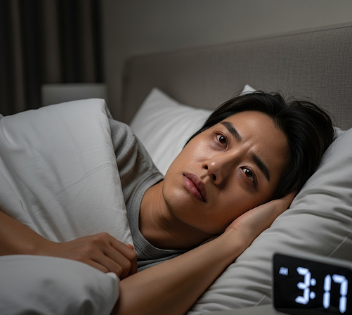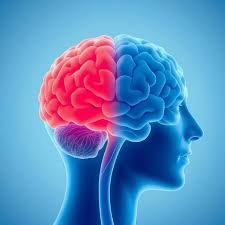Overview
Insomnia is a sleep disorder characterized by difficulty falling asleep, staying asleep, or achieving restorative sleep. It is one of the most common sleep problems worldwide and can significantly impact physical health, mental well-being, and daily functioning.
In Korea, sleep clinics and specialized centers provide comprehensive care for insomnia, including diagnostic sleep studies, cognitive-behavioral therapy for insomnia (CBT-I), lifestyle counseling, and medical treatment. Addressing insomnia early can improve overall quality of life and prevent complications such as fatigue, anxiety, and cardiovascular issues.
Key Facts
- ➔ Insomnia affects both men and women, though women and older adults are more susceptible.
- ➔ It may be acute (short-term) or chronic (lasting more than three months).
- ➔ Causes range from stress and lifestyle factors to medical conditions and medications.
- ➔ Insomnia is linked to impaired concentration, mood disturbances, and reduced immune function.
- ➔ Effective treatments include behavioral therapy, lifestyle modification, and medication when necessary.
What is Insomnia?
Insomnia is defined as the persistent difficulty with sleep initiation, duration, consolidation, or quality despite adequate opportunity for sleep. It can be categorized as:
- ➔ Acute insomnia: Short-term sleep difficulties often triggered by stress, travel, or temporary life changes.
- ➔ Chronic insomnia: Lasts three months or longer, often associated with medical or psychiatric conditions.
- ➔ Primary insomnia: Sleep problems not caused by other medical or psychological disorders.
- ➔ Secondary insomnia: Sleep difficulties resulting from underlying conditions such as depression, anxiety, chronic pain, or medications.
Insomnia disrupts the normal sleep-wake cycle, leading to daytime fatigue, impaired concentration, and emotional instability.
What Symptoms Are Related To
Insomnia presents with a range of nighttime and daytime symptoms:
- ➔ Difficulty falling asleep at bedtime
- ➔ Frequent awakenings during the night
- ➔ Waking too early in the morning and inability to return to sleep
- ➔ Non-restorative sleep despite adequate sleep duration
- ➔ Daytime fatigue, sleepiness, or low energy
- ➔ Mood disturbances such as irritability, anxiety, or depression
- ➔ Impaired concentration, memory, or cognitive performance
Recognizing related symptoms helps distinguish insomnia from other sleep disorders, such as sleep apnea or restless leg syndrome.
What Causes / Possible Causes
Insomnia may result from psychological, physiological, environmental, or lifestyle factors:
- ➔ Stress and anxiety: Work pressures, personal issues, or chronic worry disrupt sleep initiation.
- ➔ Depression or other psychiatric disorders: Often associated with early morning awakenings or poor sleep quality.
- ➔ Medical conditions: Chronic pain, gastrointestinal issues, cardiovascular disease, or neurological disorders.
- ➔ Medications: Certain stimulants, corticosteroids, or antidepressants can interfere with sleep.
- ➔ Caffeine, alcohol, and nicotine: Consumption close to bedtime can prevent sleep onset.
- ➔ Poor sleep habits: Irregular sleep schedules, excessive screen time, or uncomfortable sleep environments.
- ➔ Environmental factors: Noise, light, or extreme temperatures in the bedroom.
Identifying the underlying cause is essential for selecting the most effective treatment approach.
When Should I See My Doctor
You should consult a healthcare provider if insomnia:
- ➔ Persists for more than a few weeks and affects daily functioning
- ➔ Causes severe fatigue, irritability, or mood disturbances
- ➔ Is associated with underlying medical or psychiatric conditions
- ➔ Leads to difficulty concentrating, memory problems, or impaired work performance
- ➔ Results in sleep deprivation severe enough to affect personal safety (e.g., drowsy driving)
Early consultation ensures timely intervention and prevents long-term complications of chronic sleep deprivation.
Care and Treatment
Management of insomnia focuses on addressing underlying causes, improving sleep hygiene, and using therapeutic interventions:
- ➔ Sleep hygiene: Establishing regular sleep schedules, limiting naps, and creating a comfortable sleep environment.
- ➔ Cognitive Behavioral Therapy for Insomnia (CBT-I): Gold-standard non-pharmacological treatment that addresses negative sleep patterns and behaviors.
- ➔ Relaxation techniques: Meditation, progressive muscle relaxation, and deep breathing exercises.
- ➔ Medications: Short-term use of hypnotics, sedatives, or melatonin under medical supervision.
- ➔ Lifestyle adjustments: Reducing caffeine and alcohol intake, exercising regularly, and limiting screen time before bed.
- ➔ Address underlying conditions: Managing anxiety, depression, pain, or other medical issues contributing to insomnia.
Combination therapies often produce the best outcomes, especially when psychological and behavioral factors coexist.
Treatment Options in Korea
Korea provides advanced diagnostic and therapeutic care for insomnia:
- ➔ Sleep clinics: Comprehensive evaluation including sleep history, sleep diaries, and polysomnography.
- ➔ Behavioral therapy programs: CBT-I and stress management therapy led by trained specialists.
- ➔ Medical treatment: Prescription sleep aids, melatonin therapy, and pharmacological support when necessary.
- ➔ Holistic approaches: Integrating lifestyle modification, relaxation therapy, and counseling for improved sleep.
- ➔ Follow-up and monitoring: Regular assessment to ensure treatment effectiveness and adjust interventions as needed.
Leading centers such as Seoul National University Hospital, Asan Medical Center, and Samsung Medical Center provide multidisciplinary care combining sleep medicine, psychiatry, and behavioral therapy for optimal outcomes.
In Summary: Insomnia is a common yet serious sleep disorder that can significantly affect physical, emotional, and cognitive health. Early identification, behavioral therapy, lifestyle adjustments, and advanced medical care in Korea can restore healthy sleep patterns, improve daily functioning, and enhance overall quality of life.
- ➔ Key Takeaway: Persistent difficulty sleeping should not be ignored; early intervention is crucial for long-term health.
- ➔ Action Point: Consult a sleep specialist or healthcare professional for a personalized evaluation and treatment plan.













